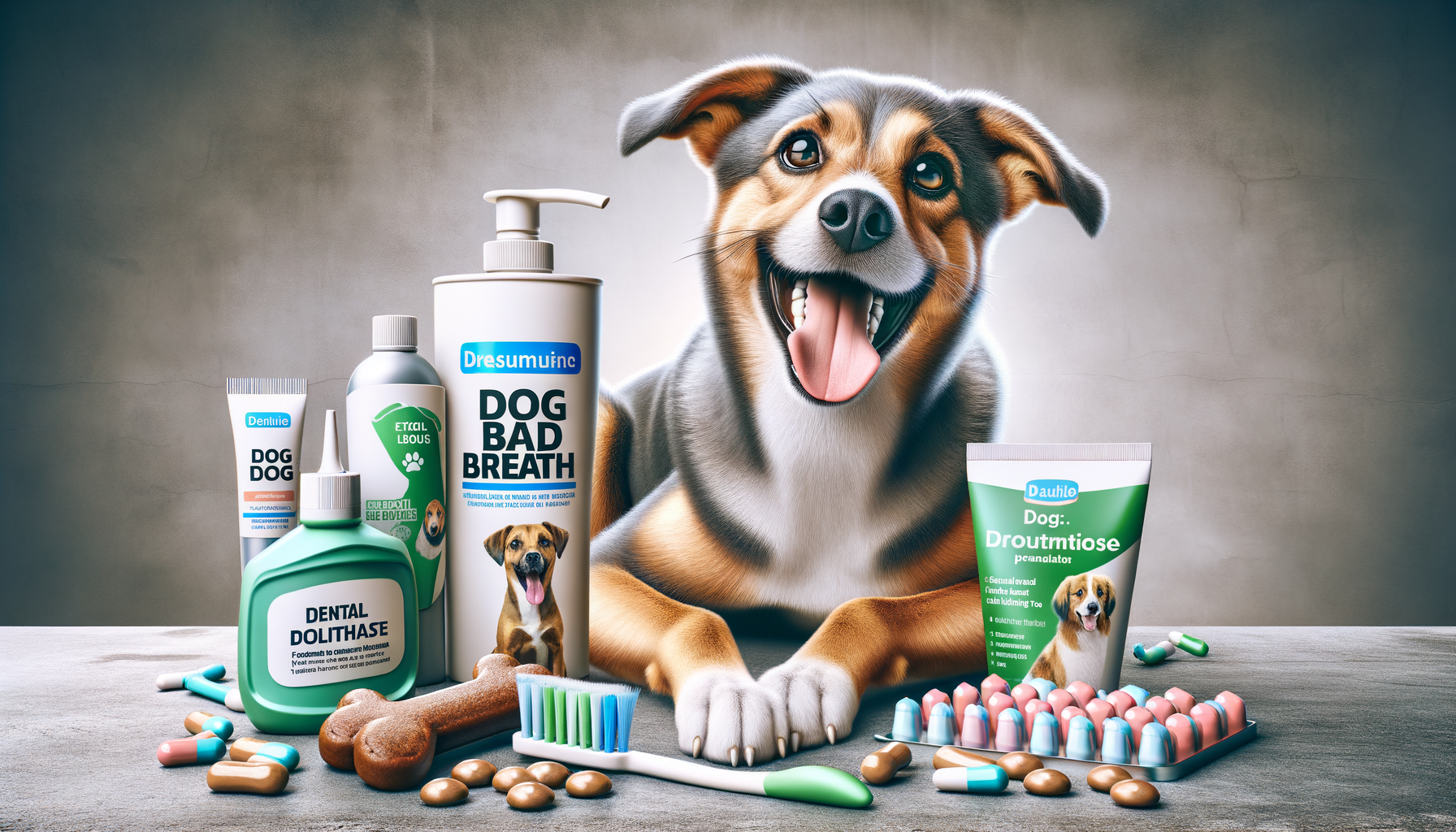Introduction to Dog Bad Breath
Dog bad breath, medically known as halitosis, is a common issue that many pet owners face. While it may seem like a minor inconvenience, it can be an indicator of underlying health problems that require attention. Understanding the causes and treatments of bad breath in dogs is essential for maintaining their overall health and happiness.
Several factors can contribute to bad breath in dogs, ranging from poor oral hygiene to more serious health issues. Regular dental care and a balanced diet are crucial in preventing and addressing this problem. In this article, we will explore various treatment options and preventive measures to help keep your dog’s breath fresh and healthy.
Common Causes of Bad Breath in Dogs
Identifying the cause of your dog’s bad breath is the first step towards finding an effective treatment. Some of the most common causes include:
- Poor Oral Hygiene: Just like humans, dogs require regular dental care to prevent plaque buildup and gum disease.
- Diet: Certain foods can contribute to bad breath, especially if they are high in sugar or carbohydrates.
- Health Issues: Conditions such as diabetes, kidney disease, or gastrointestinal problems can manifest as bad breath.
Understanding these causes can help you take proactive steps to address and prevent bad breath in your dog. Regular veterinary check-ups are also essential to rule out any serious health concerns.
Home Remedies and Preventive Measures
There are several home remedies and preventive measures you can take to improve your dog’s breath. Here are some tips:
- Regular Brushing: Brush your dog’s teeth regularly with a pet-friendly toothpaste to remove plaque and prevent tartar buildup.
- Dental Chews: Provide dental chews that are specifically designed to clean teeth and freshen breath.
- Healthy Diet: Ensure your dog is on a balanced diet that supports oral health. Avoid giving them table scraps or sugary treats.
Incorporating these practices into your dog’s routine can significantly reduce the occurrence of bad breath and contribute to their overall well-being.
Professional Treatments and Veterinary Care
If home remedies do not improve your dog’s bad breath, it may be time to seek professional help. Veterinary care can provide more specialized treatments, such as:
- Professional Dental Cleaning: Regular cleanings by a veterinarian can remove stubborn tartar and address any oral health issues.
- Medications: In some cases, your vet may prescribe medications to treat underlying health conditions contributing to bad breath.
- Diagnostic Tests: If an underlying health issue is suspected, diagnostic tests can help identify the problem and guide treatment.
Consulting with a veterinarian ensures that your dog receives the appropriate care and treatment for their specific needs.
Conclusion: Maintaining Fresh Breath for Your Dog
Maintaining fresh breath in dogs is not just about avoiding unpleasant odors; it’s also about ensuring their overall health and quality of life. By understanding the causes of bad breath and implementing effective treatments, you can help your furry friend lead a healthier and happier life.
Remember, regular dental care, a balanced diet, and routine veterinary check-ups are key components in managing your dog’s oral health. By taking these steps, you can prevent bad breath and ensure your pet’s well-being for years to come.








